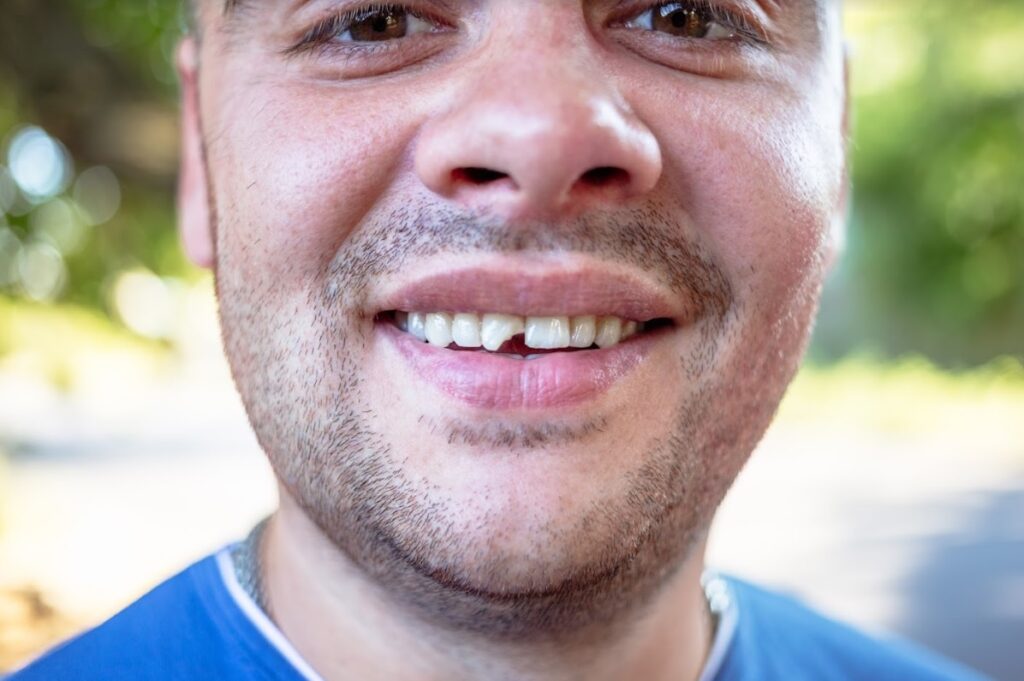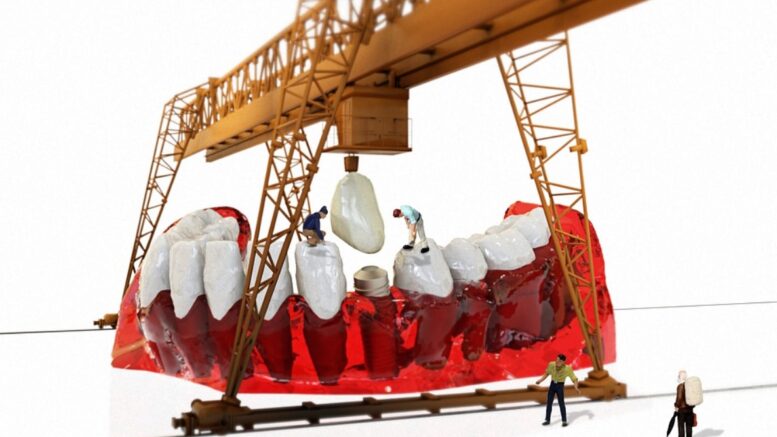Do you ever wish that your smile could have a royal touch? Now it can, with the help of dental crowns. A dental crown is an artificial cap placed over a tooth to restore its shape and size and improve its strength and appearance. Whether trying to protect a weak or broken tooth, replace one that has been lost, or make cosmetic improvements such as restoring discoloration—dental crowns offer myriad solace for varied problems in oral health care. Read on to know why this procedure may be the right choice for regaining those confident pearly whites!
Definition of Dental Crown
A dental Crown involves placing an artificial cap or covering over a natural tooth for protection, restoration, and cosmetic enhancement. Crowns can be made from porcelain or ceramic, metal alloys such as gold and silver, or other high-tech materials like zirconia with superior strength and durability. The purpose of crown work is to restore function and aesthetics while protecting existing teeth from further damage or decay.
Purpose of Dental Crown
The dental Crown aims to protect the remaining tooth structure below the gum line by covering it completely with an artificial “cap” material; this creates an airtight seal around the tooth to prevent leakage or decay. Additionally, crown work provides a durable and cost-effective solution to filling large cavities, replacing damaged teeth, and restoring the appearance of missing teeth through bridges or implants.
Overview of the Process and its Benefits
The process of dental Crown involves preparing the existing tooth or teeth for the placement of the Crown. This typically includes shaping the natural tooth structure with a dental drill, taking an impression to create a custom design for your new cap material, applying local anesthesia before either procedure is undertaken if necessary, fabricating the Crown in a professional laboratory using the impression as a template, fitting and adjusting it once placed for proper fit and match with existing tooth structure, secure bonding between adhesive and porcelain material used, and finally checking for a comfortable fit. The benefits of dental Crowns include improved oral health and aesthetics, increased comfort when chewing and talking, a durable solution that withstands wear and tear over time with proper care and maintenance, and cost-effectiveness compared to replacing multiple teeth.
What is a Dental Crown?
A. Types of Materials Used in Dental Crown
Crowns can be made from various materials, including porcelain or ceramic, metal alloys such as gold and silver, or high-tech materials like zirconia which offer superior strength and durability. Your dentist will discuss the different types available to you to decide which material best fits your needs.
B. How a Crown Works to Protect Teeth from Further Damage or Decay
A crown protects your existing tooth structure by covering it completely, creating an airtight seal that prevents leaking or decay. Additionally, the material used in the Crown acts as an artificial “cap” for the natural tooth structure remaining below the gum line, ensuring long-term durability and protection against further damage.
Who Needs Dental Crown?

A. Common Dental Conditions That Benefit From Dental Crown
Several common dental confidential Crown, including structural damage caused by injury or accident, such as cracked, broken, fractured, chipped, or misaligned teeth; severe tooth decay in which cavities are too big for a filling; and missing teeth that require bridges or implants, often combined with crowns for added protection.
B. How Dentists Determine Need for Dental Crowns (Exams and X-Rays)
To determine the need for a dental Crown, your dentist will perform a visual examination of the problem area(s) and take X-rays if needed to understand the situation better and plan accordingly.
The Dental Crown Process
A. Preparation of the Teeth for Crowns
Before placing a crown, your dentist must prepare your existing tooth structure by shaping it with a dental drill as needed and taking an impression to create an exact template for your custom crown design. Local anesthesia may also be used before either procedure is undertaken if necessary.
B. Fabricating the Crown(s)
After taking the impression to a professional laboratory, a custom-designed crown will be made according to your specifications. Your dentist will provide samples of various shades and textures to ensure a perfect match for your existing teeth.
C. Placing the Crown(s)
When it comes time to place the Crown, your dentist will first apply local anesthetic if needed and then fit and adjust it using special tools and technology to match the natural tooth structure below the gum line as closely as possible. Finally, they will secure the bonding between the adhesive and porcelain material before making one last check for a comfortable fit.
Benefits of Dental Crown
A. Improved Oral Health and Appearance
The improved protection and restoration provided by crowns helped preserve the natural tooth structure beneath, allowing for stronger chewing function and improved aesthetics that can significantly boost confidence and self-esteem.
B. Increased Comfort When Chewing and Talking
With the added protection from further damage or decay offered by a crown, you will experience increased comfort when chewing or talking due to the artificial “cap” material covering your existing tooth structure below the gum line.
C. Durable Solution That Withstands Wear-and-Tear Over Time With Proper Care and Maintenance
Dental Crown is a durable solution that can withstand wear and tear over time with the proper care and maintenance of brushing, flossing, and regular dental checkups.
D. Cost-Effective Option Compared to Replacing Multiple Teeth at Once
Crowns are a cost-effective option when compared to replacing multiple teeth at once; they provide long-lasting protection while restoring function and aesthetics that can last for many years.
Conclusion
Dental crowns can be a great way to add a royal touch to your teeth. They can help restore damaged teeth and protect them from further damage. With the help of experienced Burbank dental practitioners, you can get a beautiful and long-lasting dental crown that fits perfectly in your mouth, allowing you to enjoy all the benefits of having healthy teeth with a more attractive appearance. Visit your local Burbank dentist today for more information on how dental crowns can improve your smile!
